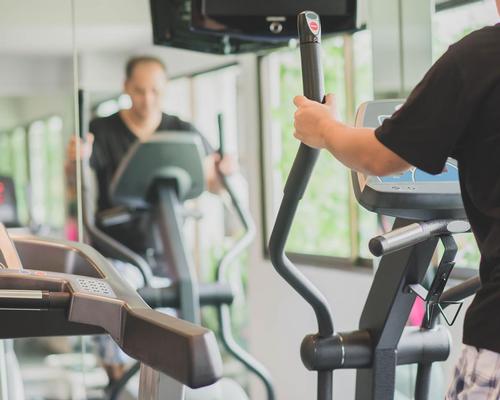30 May 2019
Exercise should become 'primary prescription' for inpatients with mental health conditions
BY Tom Walker

Exercise should be considered a primary treatment and intervention method for hospital inpatients with mental health issues.
That is the finding of a study published in the Global Advances in Health and Medicine journal on 21 May.
Entitled Positive patient response to a structured exercise program delivered in inpatient psychiatry, the research suggests that exercise is so effective at alleviating patient symptoms that it could reduce patients' time spent in hospitals and reduce their reliance on psychotropic medications.
A team of psychotherapists led by David Tomasi, a lecturer at the University of Vermont, built a gym exclusively for 100 patients at the university's medical centre's inpatient psychiatry unit.
The team then introduced 60-minute structured exercise and nutrition education programmes into patients' treatment plans. The study looked at a number of mental health issues – from anxiety and depression to schizophrenia, suicidality and acute psychotic episodes.
The psychotherapists surveyed patients on their mood, self-esteem and self-image both before and after the exercise sessions to gauge the effects of exercise on psychiatric symptoms.
Patients reported lower levels of anger, anxiety and depression, higher self-esteem, and overall improved moods.
The study, based on the sessions, found that an average of 95 per cent of patients reported improved moods after doing the structured exercises, while 63 per cent of the patients reported being happy or very happy, as opposed to neutral, sad or very sad, after the exercises.
The patients also reported that they were pleased with the way their bodies felt after doing the structured exercises.
"The fantastic thing about these results is that, if you're in a psychotic state, you're sort of limited with what you can do in terms of talk therapy or psychotherapy," Tomasi said.
"It's hard to receive a message through talk therapy in that state, whereas with exercise, you can use your body and not rely on emotional intelligence alone.
"The priority is to provide more natural strategies for the treatment of mood disorders, depression and anxiety.
"In practice, we hope that every psychiatric facility will include integrative therapies – in our case, exercise in particular – as the primary resource for their patients' psycho-physical wellbeing.
"The general attitude of medicine is that you treat the primary problem first, and exercise was never considered to be a life or death treatment option. Now that we know it's so effective, it can become as fundamental as a pharmacological intervention."
To access and read the full report, click here.
Close Window